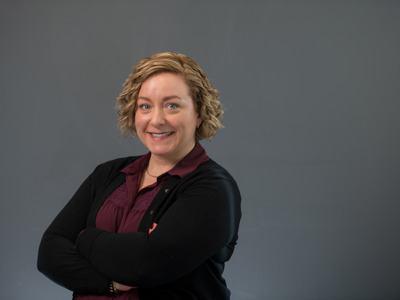
Baby Loss Awareness Week: The unseen physical impact after loss
Claudine Roberts, Liverpool-based associate solicitor in the medical negligence team, considers the importance of raising awareness of baby loss, and a very recent development in the healthcare offered to bereaved mothers.
Posted on 15 October 2025
As a clinical negligence lawyer, I see first-hand how physical health issues can often compound trauma, such as the trauma of loss. If we don’t feel well and strong physically, long-term that can have a devastating effect on our mental health.
Baby Loss Awareness Week is a time to come together to support grieving families who have experienced any kind of baby loss. The emotional consequences of such a traumatic event are now often acknowledged and addressed, when that wasn’t always the case. However, the physical impact in these circumstances is sometimes overlooked.
How many people in the UK are affected by baby loss?
Sands, a charity supporting bereaved families, say that the death of a baby is not a rare event. The devastating impact on parents in this situation is profound and is formally recognised by the NHS in the care offered after a bereavement.
What bereavement support is currently in place?
Established in 2017, the National Bereavement Care Pathway seeks to improve the quality and consistency of bereavement care received by parents after pregnancy or baby loss. There are five Bereavement Care Pathways:
- Miscarriage
- Termination of pregnancy for fetal anomaly
- Stillbirth
- Neonatal death
- Sudden unexpected death in infancy.
These pathways provide healthcare professionals with frameworks, tools and educational resources to support the delivery of bereavement care and have been adopted by most NHS trusts. Until very recently, these care pathways only addressed bereavement and did not include care for the mother’s physical recovery, because that was not their remit. This left many bereaved women falling through the gap in care pathways and receiving inadequate follow up care.
The physical impact of baby loss
Anyone who has been pregnant will experience a physical impact of some kind. Those women who were in the late stages of pregnancy who leave hospital without a baby in their arms have still given birth and remain vulnerable to related physical health problems. According to Tommy’s, physical recovery after baby loss can involve:
- Vaginal bleeding for up to six weeks
- Breast engorgement and milk production
- Pelvic floor trauma or abdominal healing after c-section
- Hormonal fluctuations that can affect both physical and emotional wellbeing
- Increased risk of infection, haemorrhage, or complications if not properly monitored
If women are not followed up properly post baby loss, they may have injuries which go unnoticed and lead to complications, which may include:
- Retained products of conception, leading to infection
- Pelvic floor dysfunction, contributing to incontinence or prolapse
- Unresolved c-section or episiotomy wounds
- Hormonal imbalances that affect menstruation and fertility
We are aware that in situations where women have lost their connection points with healthcare services after baby loss, they don’t receive the standard advice about pelvic floor exercises or restarting physical activity. Some even go without having their c-section wounds and stitches checked.
To prevent avoidable complications, it’s essential to provide comprehensive follow up care that covers both physical and emotional recovery after loss.
What is being done to help bereaved parents with their physical recovery?
It is encouraging to see that the existing gap in services is being recognised and addressed. The Sands & Tommy’s Joint Policy Unit makes regular submissions to government and NHS consultations and inquiries, to achieve policy changes that will save more babies’ lives during pregnancy and the neonatal period, while also tackling inequalities in loss. The changes to the National Bereavement Care Pathway to include provision for physical recovery, made within the last month, are a significant and welcome development.
Awareness of this issue has been raised by Jenni Calcraft, a physiotherapist in Liverpool and creator of The PABL Project, which offers physiotherapist-led support for physical postpartum recovery after baby loss. The organisation recently partnered with Tommy’s, the pregnancy and baby charity, to create their Wellbeing after Miscarriage programme, designed to support bereaved women in mind, body and core, to help them build strength, cope with difficult feelings and find hope for the future. Jenni was also involved in the consultation with the developers of the National Bereavement Care Pathway, on how physical recovery after baby loss could be added to the guidance for healthcare professionals.
Jenni reports that some women have had severe infections because they were not able to advocate for themselves and seek help for their physical recovery. They may have received excellent bereavement care for their emotional wellbeing, but the mental health professionals they were seeing were not asking about their physical recovery.
Jenni says:
“Attending to one’s physical self, postpartum, is not only important physically, but also has a huge impact on your emotional wellbeing. Gaining physical strength leads to greater emotional strength and resilience, and even a greater ability to process trauma. Many women need to emotionally reconnect with their body through exercise, and the emotional gains are even greater than the physical.”
As lawyers, we will often have contact with families and individuals following traumatic events including baby loss. It is vital that we appreciate the importance of healthcare for physical recovery, as well as bereavement support, and advocate for our clients, so they can access the necessary resources to aid their recovery. Whether you are supporting a bereaved family professionally or personally, as we mark Baby Loss Awareness Week, let’s be mindful of the need for a more holistic approach to bereavement care—one that recognises the physical and emotional needs of grieving families.

Claudine Roberts
Claudine Roberts is an associate solicitor in the medical negligence department.



